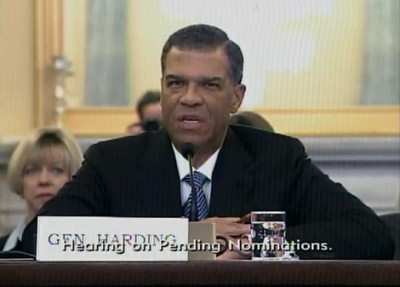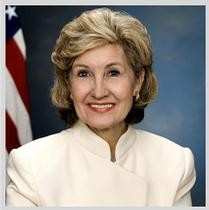Major General Robert A. Harding Tells Commerce Committee That
Israeli Security System Could Be A "Blueprint" For U.S.
Airports
The U.S. Senate Committee on Commerce, Science, and
Transportation held a full committee hearing Tuesday on the
nomination of Major General Robert A. Harding (U.S.A., ret.), to
lead TSA as Assistant Secretary of the U.S. Department of Homeland
Security. That hearing was followed by one held Wednesday morning
by the Homeland Security and Government Affairs Committee.

“We simply cannot ignore the fact that our Transportation
Security Administration (TSA) has no administrator in charge, no
leader at the helm. The attempted Christmas Day attack illustrated
the absolute need for TSA to have the strong leader it needs to
keep us safe," said Commerce Committee chairman John D. Rockefeller
IV (D-WV) in Tuesdays hearing. "Our enemies are persistent and
dangerous, and we know they continue to plan new attacks. We need a
highly qualified, strong administrator to lead the TSA and its
workforce in protecting our country against future attacks. Major
General Robert Harding’s distinguished career in both
government and the private sector—where he gained the strong
management and leadership skills that the position
demands—makes him a good fit for this mission. I have no
doubt that Major General Harding is ready and qualified to lead
this agency effectively.”
Reuters reports that Harding told the Senators on the Commerce
panel that the Israeli security system could serve as a "blueprint"
for airport security in the U.S. "We should move even closer to an
Israeli model where there's more engagement with passengers,"
Harding said. "I think that increases the layers and pushes the
layers out."
 Texas Senator Kaye Bailey
Hutchison (pictured), the senior Republican on the panel, asked
General Harding about his position on unionizing the 48,000 TSA
screeners. She said flexibility and agility are key in the agency's
ability to deploy its human assets where and when they are needed.
Harding agreed with that assessment. "I think the secretary and I,
in arriving at a decision, would be very concerned about the
implementation of such a change if it was to be accepted. We both
agree that we would never bargain away security." But Harding said
the issue would require "in depth and thorough" study on his part
before he could make a recommendation to the Secretary. "I
understand your inability to make a clear answer, but I'm going to
be very interested in following this," Hutchison responded.
Texas Senator Kaye Bailey
Hutchison (pictured), the senior Republican on the panel, asked
General Harding about his position on unionizing the 48,000 TSA
screeners. She said flexibility and agility are key in the agency's
ability to deploy its human assets where and when they are needed.
Harding agreed with that assessment. "I think the secretary and I,
in arriving at a decision, would be very concerned about the
implementation of such a change if it was to be accepted. We both
agree that we would never bargain away security." But Harding said
the issue would require "in depth and thorough" study on his part
before he could make a recommendation to the Secretary. "I
understand your inability to make a clear answer, but I'm going to
be very interested in following this," Hutchison responded.
Wednesday, in a hearing before the Homeland Security and
Governmental Affairs Committee, Harding said he sees TSA as a key
player in national security. "If confirmed, I will ensure that TSA
continues to work closely with and receives necessary intelligence
from the Intelligence Community, and that this information is
applied across transportation modes," Harding said in his opening
remarks. "I believe that the TSA should work closely with our
partners in the Intelligence Community to improve the kinds of
information needed from the watchlist system; and if confirmed, I
will continue the work begun from the President’s review to
work with our interagency partners to review and, where necessary,
modify the criteria and process used to build the Terrorist
Screening Database (TSDB) and nominate names for the No-Fly and
Selectee Lists."
"Additionally, I will encourage the use of enhanced screening
technologies, both at domestic airports and by our international
partners, while remaining respectful of privacy, and civil rights
and liberties," he continued. "Our objective in using these
technologies is clear: to strengthen our abilities to find
dangerous materials and to stop dangerous people."
 ANN's Daily Aero-Term (05.29.25): Terminal Radar Service Area
ANN's Daily Aero-Term (05.29.25): Terminal Radar Service Area ANN's Daily Aero-Term (05.30.25): Very High Frequency (VHF)
ANN's Daily Aero-Term (05.30.25): Very High Frequency (VHF) Aero-News: Quote of the Day (05.30.25)
Aero-News: Quote of the Day (05.30.25) Airborne 05.23.25: Global 8000, Qatar B747 Accepted, Aviation Merit Badge
Airborne 05.23.25: Global 8000, Qatar B747 Accepted, Aviation Merit Badge ANN's Daily Aero-Linx (05.30.25)
ANN's Daily Aero-Linx (05.30.25)




